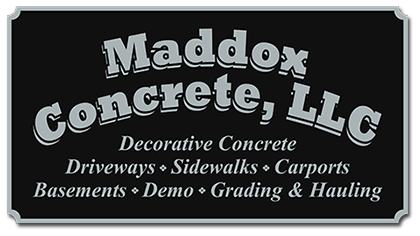The Benefits of Concrete as a Building Material: Strength, Durability, and Versatility
Concrete has been used as a building material for centuries, and its popularity persists to this day. It offers a range of benefits that make it a preferred choice for construction projects. In this blog post, we will explore the advantages of concrete as a building material, focusing on its strength, durability, and versatility.
Strength: A Foundation for Structural Integrity
Concrete is renowned for its exceptional strength, making it an ideal choice for constructing robust structures. It has a high compressive strength, which means it can withstand heavy loads without collapsing or deforming. This is especially important for buildings or infrastructure that need to support significant weight, such as bridges, high-rise buildings, and dams.
Durability: Built to Last
One of the most significant advantages of concrete is its durability. Unlike other building materials that may deteriorate over time, concrete is highly resistant to wear and tear. It can withstand extreme weather conditions, including high winds, storms, and even seismic activity. Its resistance to fire and moisture damage further enhances its longevity, making it an excellent choice for structures that require long service life.
Versatility: Adaptability for Various Applications
Concrete offers remarkable versatility in terms of design and application. It can be molded into different shapes and sizes, making it suitable for a wide range of construction projects. From sidewalks and roadways to residential buildings and commercial complexes, concrete can fulfill diverse architectural requirements. With various finishes and decorative techniques available, concrete can also be aesthetically pleasing while maintaining its strength and durability.
Energy Efficiency: Thermal Mass Benefits
Concrete possesses excellent thermal mass properties, which can contribute to energy efficiency in buildings. The ability of concrete to store and absorb heat can help regulate indoor temperatures, reducing the need for excessive heating or cooling. This can result in lower energy consumption, leading to energy cost savings in the long run. Additionally, concrete’s insulating properties can help mitigate outside noise and create a quieter indoor environment.
Sustainability: An Environmentally Friendly Choice
In recent years, the focus on sustainable construction practices has led to increased interest in concrete as a greener building material. Concrete production relies on abundant and locally available materials such as sand, gravel, and water. Its longevity also reduces the need for frequent replacement, resulting in fewer construction materials being used over time. Furthermore, concrete can be recycled and reused, minimizing waste and reducing the environmental impact.
Low Maintenance: Cost Savings in the Long Run
Concrete’s durability and ability to withstand harsh conditions translate to lower maintenance requirements compared to other building materials. Once a concrete structure is properly constructed, it typically requires minimal maintenance, saving both time and money. This can be particularly beneficial for large-scale infrastructure projects, where ongoing maintenance costs can be significant.
Fire Resistance: Enhancing Safety
Concrete’s resistance to fire is a crucial advantage in ensuring the safety of buildings and occupants. Unlike wood or steel, which can easily catch fire and weaken the structure, concrete maintains its integrity even when exposed to high temperatures. Buildings constructed with concrete provide enhanced fire resistance, allowing for quicker and safer evacuation during emergencies.
Conclusion
Concrete has established itself as a leading building material due to its strength, durability, versatility, and numerous other benefits. Its ability to withstand heavy loads, resist wear and tear, and adapt to various architectural designs makes it an excellent choice for construction projects of all scales. Furthermore, its energy efficiency, sustainability, low maintenance, and fire resistance add to its appeal as a reliable and cost-effective building material. As we continue to evolve in the field of construction, concrete’s timeless qualities ensure its continued prominence in the industry.
Got questions about what concrete can do for you? Let us help! Contact us today to learn more!

